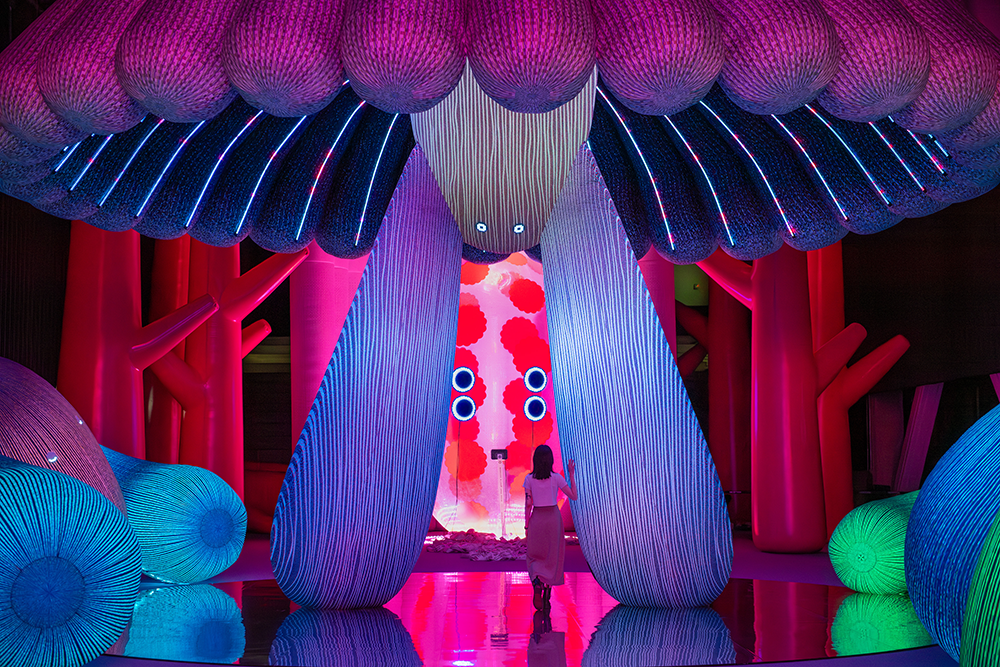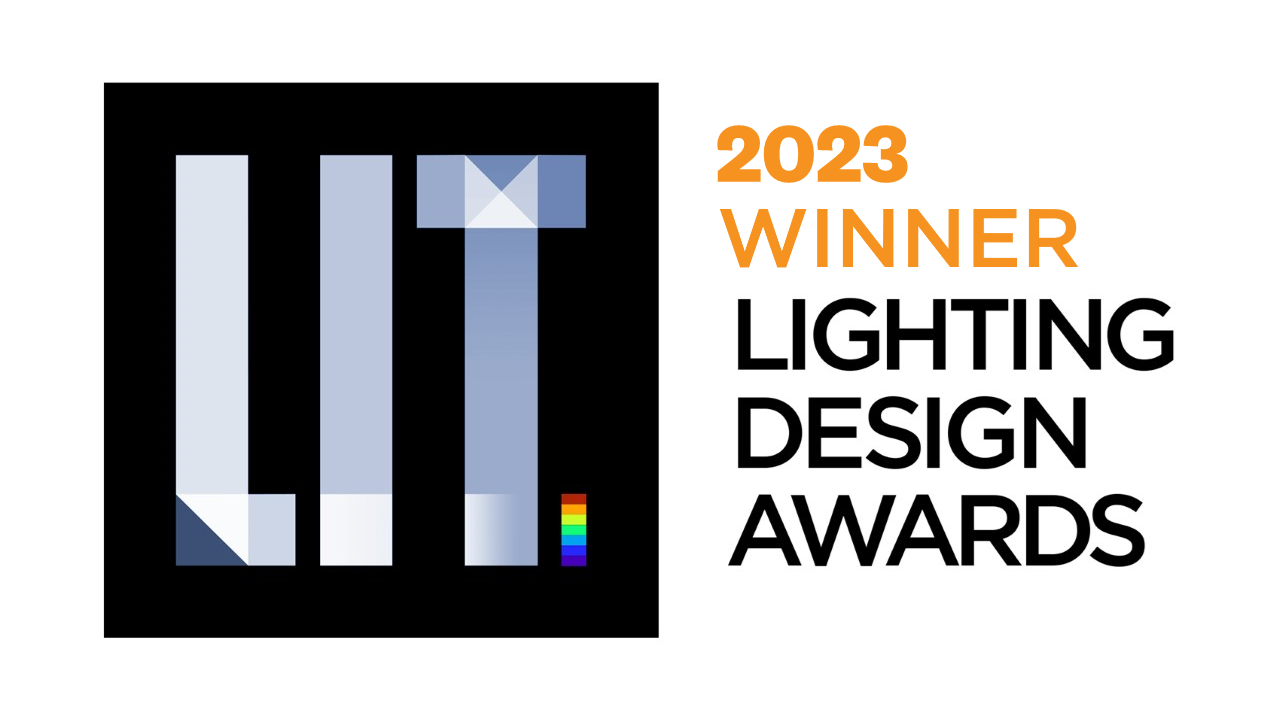Prize(s) Winners in Interactive Lighting Project / Light Art Project
Lighting Design/Product Company ENESS
Lead Designers Nimrod Weis
Client Eslite Spectrum Corporation
Photo Credits Te-Fan Wang
Other Credits Video: 8ID Studio
Completion Date 29 September 2023
Project Location Eslite Spectrum, Xindian Store, Taipei, Taiwan
Entry DescriptionModern Guru and the Path to Artificial Happiness is an immersive new media installation that uses the intersection of art and technology to explore modern paths to happiness through unique interactions with characters along a mystical journey of discovery.
Visitors are asked to commit to the path – a tight and winding trail with subtle points of connection along the way – a glowing landscape of oversized, whimsical mountains that chant incantations and blink innocently from digital eyes.
Pilgrims also encounter a ten-metre tall forest dancer twirling in the middle of the path. She is a symbol of creative freedom in the modern world.
Visitors gradually progress through this journey of ritual, realisation and revelation, a warped and strange world full of illusions and delusions, perceptions and deceptions to the final part of the work to reach one of the two all-seeing gods: the Sun God and the God of Gods in this little world – Modern Guru.
Modern Guru is a translucent ovoid with four huge digital eyes, floating above a ceremonial ring of LEDs. From his mouth flows a ream of absurdist messages, and in a statement about the true nature of lived experience, a new message is delivered when visitors take a photo of Modern Guru – a missive produced only for those who seek to photograph life rather than live in the moment.
Sustainability ApproachWith an explosion in international demand but a desire to ensure a lower carbon footprint; a custom plug and play system was developed for all temporary installations. The studio’s industrial designers combined all technical elements into one unit – fans, computer, LED controller, speakers, network and sensors. By bringing this superior level of commercial design and manufacturing to the fabrication and build of each temporary artwork; it has made the units easier to transport; and the installation simple and seamless, enabling clients to use a manual to install with relative ease, rather than ENESS staff having to fly all over the world to install. Additionally, all inflatable fabric is recycled through a Melbourne-based plastics recycling company. The skins are broken down, processed and turned-back into raw plastic and textiles for reuse in packaging and other plastic-based products.

